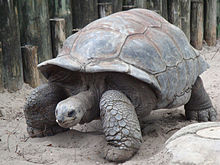Tortoise keeping has been popular in the UK for a long time and it is estimated that between the years 1969-1972 approximately 480,000 tortoises were imported into Britain. A report compiled by TRAFFIC International for DEFRA (2002) demonstrated that there has been a growing interest in the keeping of tortoises in the UK over several decades. In addition to this, there has also been evidence of smuggling and illegal trade in tortoises to meet the increased desire of people to own tortoises.
“A European import ban on wild-caught Mediterranean tortoises came into force in 1984, with only captive bred or pre-ban tortoises allowed to be traded. This ban caused an increase in trade in African and Eurasian tortoise species into Europe instead. With this shifting of pressure to new species in trade came the need for protection of a wider range of tortoises. As a result, in February 1999, wild-caught specimens of a further 18 species were banned from import into the EU. Only captive-bred tortoises or those imported before the ban of these 18 species are now allowed in commercial trade.” [TRAFFIC International for DEFRA (2002)]
W ould you believe it? Tortoise is a surname in England! Right from the 1841 census of England and Wales (and undoubtedly in parish registers prior to 1837), there are Tortoises knocking about, mostly in the counties of Norfolk and Durham with the odd one meandering to the City of Chimney Pots for work. Tortoiseshell seems to have different origins though with most of the name bearers in 1881 living in Lancashire. Tortoise and tortoiseshell do not appear in the various surname dictionaries but Tortise and Tortiss do feature in Reaney & Wilson with the earliest name bearers recorded as Hubert Turtuse in the Curia Regis Rolls for Suffolk in 1200 and Gilbert Tortouse in Essex Subsidy Rolls in 1327.
ould you believe it? Tortoise is a surname in England! Right from the 1841 census of England and Wales (and undoubtedly in parish registers prior to 1837), there are Tortoises knocking about, mostly in the counties of Norfolk and Durham with the odd one meandering to the City of Chimney Pots for work. Tortoiseshell seems to have different origins though with most of the name bearers in 1881 living in Lancashire. Tortoise and tortoiseshell do not appear in the various surname dictionaries but Tortise and Tortiss do feature in Reaney & Wilson with the earliest name bearers recorded as Hubert Turtuse in the Curia Regis Rolls for Suffolk in 1200 and Gilbert Tortouse in Essex Subsidy Rolls in 1327.
You’ll never guess what they state the meaning of the surname as ….! From medieval English …. ‘a type of slowness’. Well, we certainly needed a dictionary of surnames to work that one out, eh!

